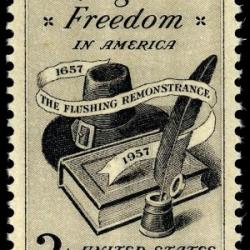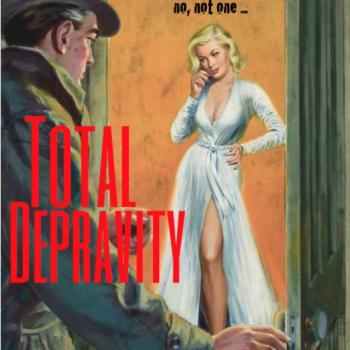Justice must be reciprocal. Otherwise it’s not justice.
Turnabout is fair play and fair play is turnabout. Justice isn’t justice if it’s not the same when the shoe is on the other foot.
Louisiana lawmakers do not understand this:
We told you last week about Louisiana’s new plan for educating its youth, which is to stop having a plan for educating its youth and just dump everybody into classrooms owned by private companies that replace teachers with Moses Explains Algebra on VHS.
They’re set to steer tens of millions of dollars into the new privatization program, which pays for vouchers that parents can use to send their children to religious schools. Gov. Bobby Jindal said the state was “changing the way we deliver education,” which is a lot like Domino’s saying it’s changing the way it delivers pizza by locking up the store and telling everyone to buy a Hot Pocket from the Vatican. In any case, Louisiana Republicans loved the plan. Until a group of folks showed up to ruin the whole thing: Muslims.
The Voss Lighting Company of Lincoln, Neb., does not understand this:
According to the complaint, the manager asked Wolfe “to identify every church he has attended over the past several years; where and when [he] was ‘saved’ and the circumstances that led up to it.” In the interview, Wolfe claims he was told most employees at Voss were Southern Baptist, but employees could go to any church, as long as they were “born again.” The complaint claims the manager asked Wolfe if he would “have a problem” coming to work early, without pay, to attend Bible study. Wolfe, a single parent who says he cannot attend church on Sundays, told lawyers the branch manager was “agitated” at his answers. He didn’t get the job.
As Joe Jervis says, “If the situation were reversed, you can bet this story would be at the top of every Christianist site.”
And that is always the key question: Would this seem fair “if the situation were reversed”?
Ben Bernanke does not understand this, but Matt Yglesias does:
If I had a chance to ask Federal Reserve Chairman Ben Bernanke a question at his press conference today, this is what I would want to know: “Suppose that inflation were 8.2 percent and the unemployment rate was at or below 2 percent, what would you do?”
The answer, obviously, is tighter money. But that wouldn’t just mean an operational action to raise interest rates. You would, of course, raise interest rates. But expectations matter. If people thought that as soon as unemployment lingered above 2 percent for a month or two that rates would come down again, then inflationary expectations would never be whipped. To implement a tight money policy that worked, Bernanke would need to lecture a little bit. He’d have to say that while of course nobody wants to see unemployment go higher if you want to bring inflation down you have no choice but to tolerate somewhat higher unemployment.
Jason Pitzl-Waters does understand this:
Sadly, these worthy efforts towards making the Air Force a place that respects all manifestations of faith is being framed as an attack on “religious freedom” by these lawmakers. For them, religious freedom means freedom for Christians to swing their theological “arms” without any regard to whose nose might be struck. When [they] assert that “the combination of events mentioned above raises concerns that the Air Force is developing a culture that is hostile towards religion” what they mean is hostile toward unfettered Christian expression, and little else. I cannot imagine that any of the 66 lawmakers gave one thought as to what things were like for religious minorities before the recent shift in policy and tone. Religious freedom, for them, begins and ends with their conception of America as a “Judeo-Christian” nation that exists under a single, monotheistic, God.
As I’ve said before, to these Christians, government-enforced secularism isn’t a neutral ethos, but a method of attacking their faith and limiting their free expression. In the minds of these Christians “religious freedom” means, in this time of demographic dominance, the right to let the majority dictate the religious norms of a society. Any deviance from that, in limiting prayer in schools, or sectarian prayer at government meetings, is a persecution of their church. We are increasingly caught in Christianity’s own crisis over its role and purpose in a post-Christian pluralistic society, and the results aren’t always pretty. …
… If religious freedom as a concept is going to mean anything, if isn’t going to just be hollow rhetoric, then it needs to apply equally to everyone.












